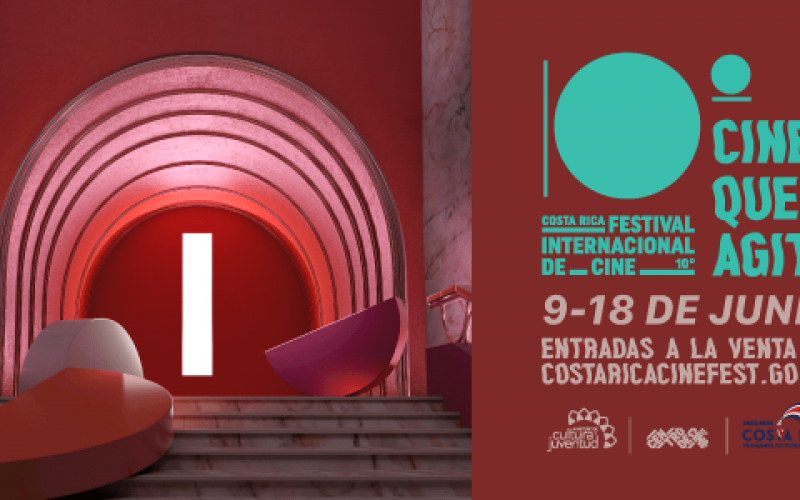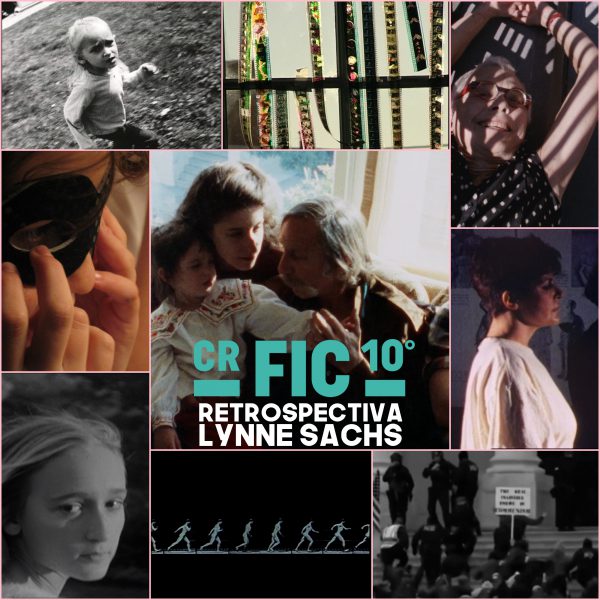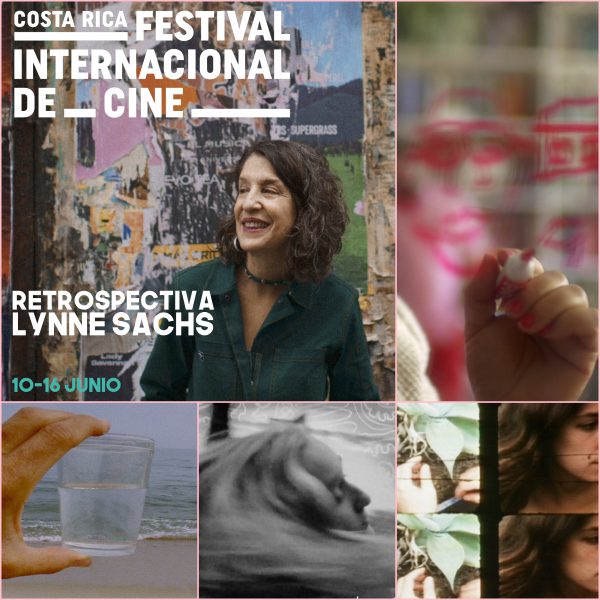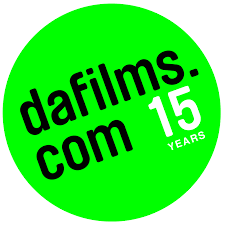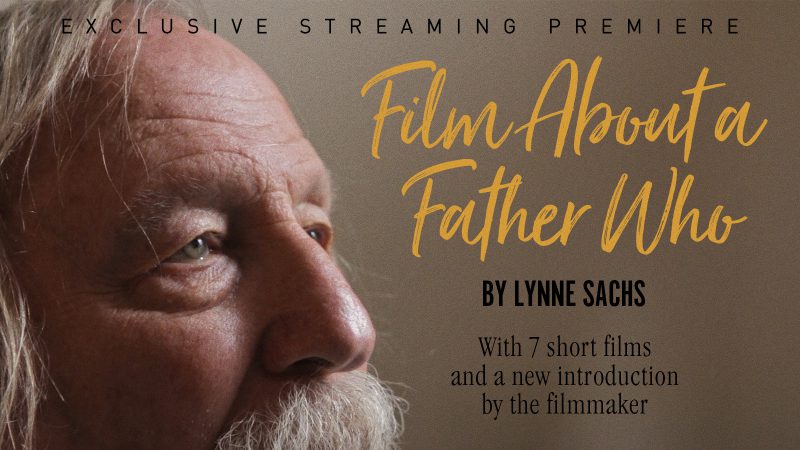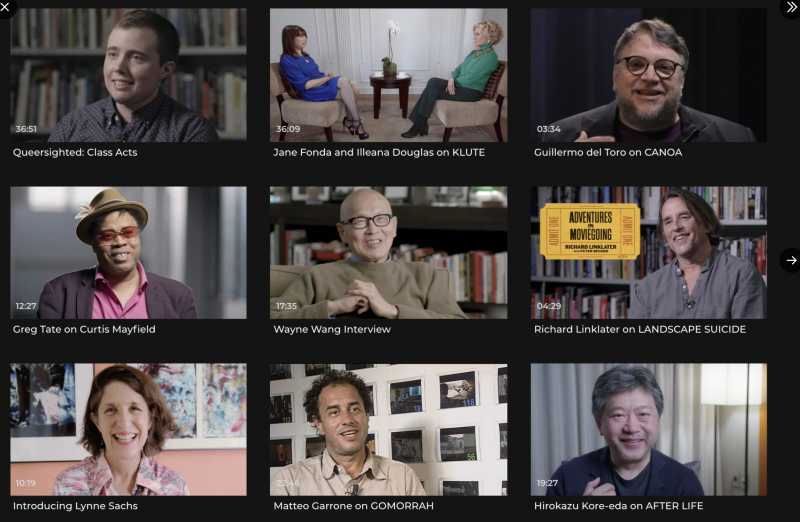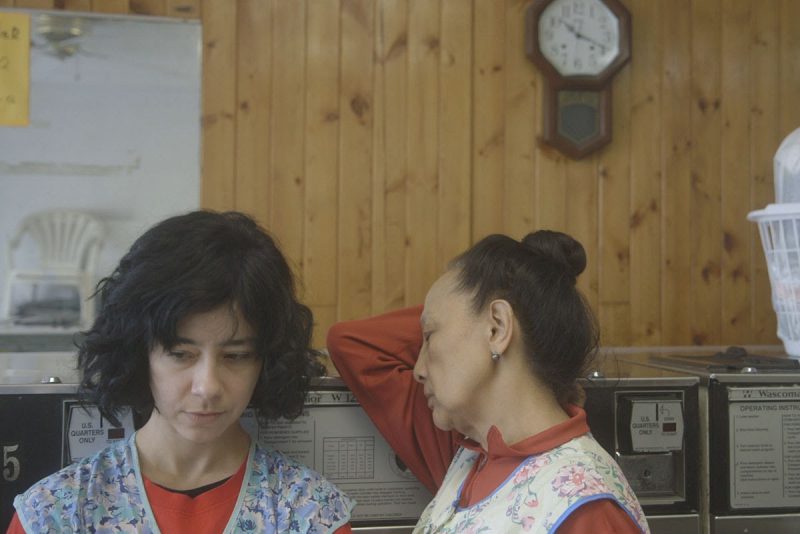
Experimental filmmaker Lynne Sachs donates films to Hunter College Libraries
Hunter College Libraries
July 26, 2023
https://library.hunter.cuny.edu/news/experimental-filmmaker-lynne-sachs-donates-films-hunter-college-libraries
Experimental filmmaker Lynne Sachs donates films to Hunter College Libraries
Feminist, artist, experimental documentary filmmaker, and poet Lynne Sachs’ donation of DVDs to Hunter College Libraries completes the Libraries’ collection of Sachs’ films on DVD. The films are available for CUNY students, staff, and faculty to borrow. Scroll down to see the list.
I asked Lynne about her teaching experience at Hunter College. Here is her reply:
“I started at Hunter in September 2001, and of course you know what happened that month. My relationship to the school has been consistent and meaningful for all of these years. In that first semester, I witnessed the way that the school became a real home and place of solace for the students, especially the international ones. Every class was like a therapy session, blending the emotional and intellectual into a single impactful experience (or at least that’s how it is in my memory). I was also at Hunter for the very first conversations around their IMA Grad program which has turned into a deeply respected and supportive community.”
Lynne taught the follwing classes:
Graduate courses in the Integrated Media Arts MFA program:
The Accident that Pricks: Family and Photography
Day Residue: Hybrid Media and Performance
Film as a Collaborative Art
Frames and Stanzas: Film and Poetry
Non Fiction Graduate Seminar
Undergraduate Courses:
Introduction to Film and Media
Developing the Documentary
Sound for Film and Video
Film 1
“What I do in the world when I’m in the act of shooting film is ask myself how and if I can work in concert with something that exists in reality.” – From an interview with the poet Paulo Javier in Bomb Magazine, March 2014.
Lynne Sachs’ films have been featured in a number of retrospectives, including one at The Museum of Moving Image, Lynne Sachs: Between Thought and Expression, organized by assistant curator Edo Choi. In a review of the retrospective, Kat Sachs (no relation), highlights themes of Sachs’ work and the personal and experimental approach the filmmaker takes to communicate through the medium of film.
“A Reality Between Words and Images: Films by Lynne Sachs,” a program screening in October, 2022 at e-flux Screening Room featured six of the filmmaker’s works. In a review of the program on Screenslate.com, the author discusses the filmmaker’s exploration of the subjects.
A retrospective of Lynne Sachs’ work was included in the Ghosts and Apparitions section of the virtual Sheffield Doc/Fest in 2020. Reviews of the retrospective appeared on Hyperallergic and ubiquarian. In an interview in Modern Times Review, the filmmaker discusses her films in the Sheffiled Doc/Fest. Two of the films in the Festival, The Washing Society (co-directed with playwright Lizzie Oleskar) and Your Day is My Night, investigate the experiences of immigrants working in service jobs, a timely subject during the height of the Covid-19 pandemic.
Reviews of Lynne Sachs’ Film About a Father Who can be found on Cineaste, and was a Critic’s Pick on the New York Times.
A two-part interview with the experimental filmmaker is available on A Masters Edition episode of Docs in Orbit. “In part one of the conversation, Lynne Sachs discusses how feminist film theory has shaped her work and her approach to experimental filmmaking. We also discuss her collaborative process in her films, including her short documentary film A MONTH OF SINGLE FRAMES (for Barbara Hammer). Part two discusses her latest feature-length documentary film, FILM ABOUT A FATHER WHO (2020).”
Films by Lynne Sachs available at Hunter College Libraries
Film about a father who
Sachs, Lynne, film director, director of photography, narrator, on-screen participant.; Sachs, Ira, Sr., interviewee, on-screen participant.; Sachs, Ira, cinematographer, on-screen participant.; Shapass, Rebecca, editor of moving image work.; Vitiello, Stephen, composer (expression); Allen, Kevin T., remix artist.; Cinema Guild, publisher.
2021?
The washing society
Olesker, Lizzie, filmmaker.; Sachs, Lynne, filmmaker.; Hanley, Sean (Film producer), director of photography.; Katz, Amanda, editor of moving image work.; Vitiello, Stephen, composer (expression); Holloway, Jasmine, actor.; Santa, Veraalba, actor.; Ching, Valdes-Aran, actor.; Torn, Tony, actor.; Canyon Cinema Foundation (Firm), film distributor.
2019
Tip of my tongue
Katz, Amanda.; Sachs, Lynne, film director, author, participant.; Cinema Guild, film distributor.
2018
Your day is my night = 你的白天是我的黑夜 / Argot Pictures ; a film by Lynne Sachs ; produced by Lynne Sachs and Sean Hanley ; directed by Lynne Sachs. ; Your day is my night = Ni de bai tian shi wo de hei ye
Argot Pictures (Firm), film production company.; Cinema Guild, publisher.; Sachs, Lynne, film director, film producer, screenwriter.; Robles, Rojo, screenwriter.; Hanley, Seán, film producer, editor of moving image work, director of photography.; Cao, Yi Chan, performer, interviewee (expression); Chan, Linda, performer, interviewee (expression); Che, Chung Qing, performer, interviewee (expression); Ho, Ellen, performer, interviewee (expression); Huang, Yun Xiu, performer, interviewee (expression); Lee, Sheut Hing, performer, interviewee (expression); Santa, Veraalba, performer, interviewee (expression); Tsui, Kam Yin, performer, interviewee (expression); Mass, Ethan, editor of moving image work.; Vitiello, Stephen, composer (expression)
2013
Con viento en el pelo = Wind in our hair
Sachs, Lynne.; Gallisá, Sofía.; Molina, Juana.; Peroni, Lena.; Peroni, Chiara.; Street-Sachs, Maya.; Street-Sachs, Noa.; Cortázar, Julio.
2011
The last happy day : with 4 short films
Sachs, Lynne. film director.; Mass, Ethan, director of photography.; Lenard, Hansgerd. interviewee (expression); Lenard, Andrietta. interviewee (expression); Gerendas, Israel John. actor; Moss, Donald. actor; Fagen, Lucas. actor; Reade, Isabel. actor; Street-Sachs, Maya. actor; Street-Sachs, Noa. actor
2011
10 short films. Vol. 3
Sachs, Lynne. ; Microcinema, Inc.
2008
Which way is east
Sachs, Lynne.; Sachs, Dana.
2007
States of unbelonging : a film
New Day Films.; Sachs, Lynne.; Zats, Nir.; Reichman, Ted.
2006
Films of Lynne Sachs
Charming Hostess (Musical group); Sachs, Lynne.; Z, Pamela, 1956-
2005
Sermons and sacred pictures
Sachs, Lynne.; Taylor, L. O., 1900-1977.; Center for Southern Folklore.; First Run/Icarus Films.
2004
Investigation of a flame : a documentary portrait of the Catonsville nine
Sachs, Lynne.
2003, 2001


